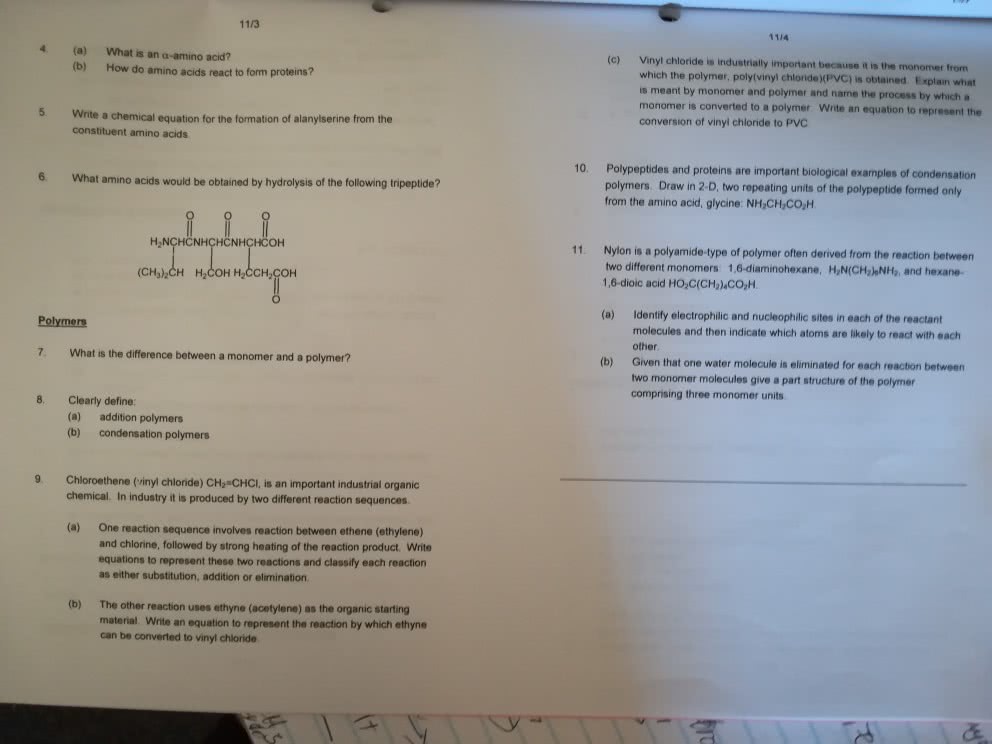CHEM 343 Lecture Notes - Anionic Addition Polymerization, Cationic Polymerization, Radical Polymerization
45 views3 pages
Document Summary
A polymer is a large molecule made by linking together repeating units of small molecules called monomers. The process of linking them up is called polymerization. Synthetic polymers can be divided into two major classes, depending on their method of preparation. Chain-growth polymers (or addition polymers) are made by the addition of monomers to the end of a growing chain. Step-growth polymers (or condensation polymers) are made by combining two molecules while, in most cases, removing a small molecule (generally water or an alcohol). The reacting molecules have reactive functional groups at both ends. Chain-growth polymerization proceeds by one of three possible mechanisms: radical polymerization, cationic polymerization, or anionic polymerization. Each mechanism has three distinct phases: initiation step that starts the polymerization, propagation steps that allow the chain to grow, termination steps that stop the growth of the chain. Head-to-tail addition is preferred, because the propagating site preferentially attacks the less sterically hindered carbon of the alkene.
Get access
Grade+20% off
$8 USD/m$10 USD/m
Billed $96 USD annually

Homework Help
Study Guides
Textbook Solutions
Class Notes
Textbook Notes
Booster Class
40 Verified Answers
Class+
$8 USD/m
Billed $96 USD annually

Homework Help
Study Guides
Textbook Solutions
Class Notes
Textbook Notes
Booster Class
30 Verified Answers
Related textbook solutions
Chemistry: Structure and Properties
2 Edition,
Tro
ISBN: 9780134293936
Basic Chemistry
5 Edition,
Timberlake
ISBN: 9780134138046
Principles of Chemistry Molecular Approach
4th Edition,
Tro
ISBN: 9780134112831
Chemistry: Structure and Properties
2nd Edition,
Tro
ISBN: 9780134293936
Principles of Chemistry Molecular Approach
3rd Edition, 2014
Tro
ISBN: 9780321971944
Chemistry: A Molecular Approach
3rd Edition,
Tro
ISBN: 9780321809247
Chemistry: A Molecular Approach
5th Edition,
Tro
ISBN: 9780134874371
Principles of Chemistry: A Molecular Approach
4th Edition,
Tro
ISBN: 9780134895741
Chemistry: The Central Science
14th Edition, 2017
Brown
ISBN: 9780134414232










